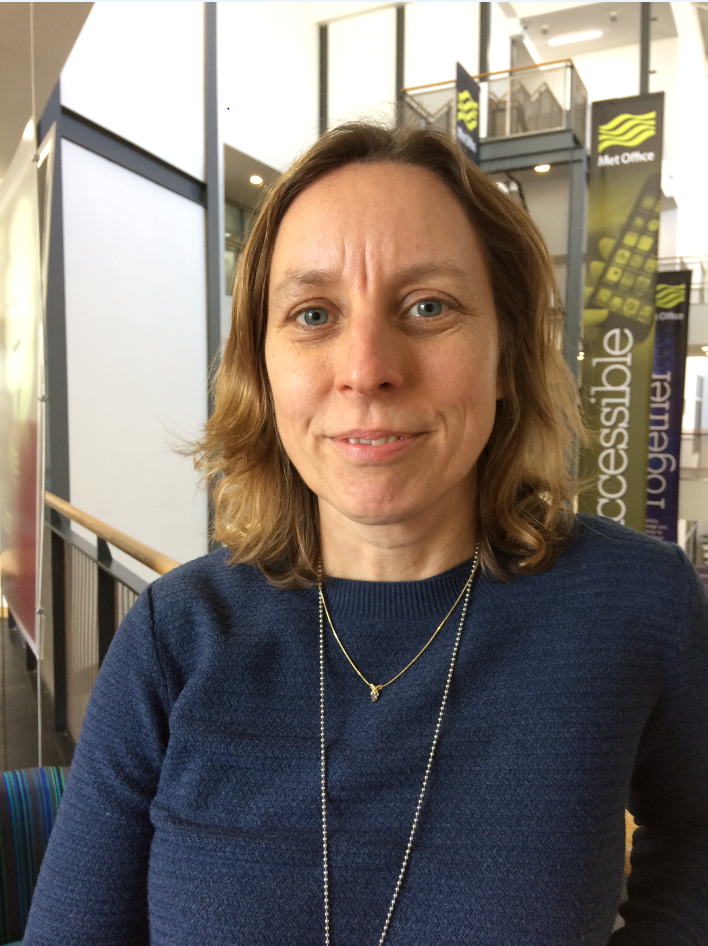Helene Hewitt and John Dunne are no strangers to CMIP. Both have enjoyed impressive careers in the climate science world, and in the start of 2023 have joined the CMIP Panel as our new co-chairs.

Dr. Helene Hewitt joined the UK Met Office in 1996 as an ocean scientist working on model evaluation. Between 2003 and 2022, she led the development of both the NEMO ocean model and CICE sea ice model and their coupling within HadGEM3. She led the Met Office Ocean Modelling group and the UK Joint Marine Modelling Programme. She is a Met Office Science Fellow, an adjunct fellow at the National Oceanography Centre and a visiting Professor at the University of Southampton. Due to her expertise, in the most recent Intergovernmental Panel on Climate Change (IPCC) Assessment Report (AR6), Helene coordinated the Ocean, Cryosphere and Sea Level Change chapter. Helene was awarded an Order of the British Empire (OBE) in 2022 for services to Climate Science.

Dr. John Dunne is a supervisory research oceanographer, leading the Biogeochemistry, Atmospheric Chemistry, and Ecosystems Division of NOAA’s Geophysical Fluid Dynamics Laboratory in the US. He co-led GFDL’s Earth System Model Development team for both CMIP5 and CMIP6. John was also a lead author for the IPCC AR6 chapter on ‘Future Global Climate: Scenario-based projections and near-term information’. Through his influence within climate science, in 2021 John was named at number 175 on Reuters’ Hot List of World’s Top 1000 Climate Scientists due to a combination of the amount he has published, how much his work has been cited in academia, and the amount his work is referenced in the press.
Hear from our co-chairs, in their own words, about their career path towards CMIP Panel and some of their goals for during their tenure.
What is your experience with CMIP and its data?
Helene: I’ve been working with climate models and CMIP since I first joined the Met Office Hadley Centre over 26 years ago. I’ve spent most of my career working in ocean, sea ice and climate modelling. Most recently, I was a Coordinating Lead Author of the IPCC Sixth Assessment Report on the Ocean, Cryosphere and Sea Level Change chapter. Our assessment in that chapter relied a lot on CMIP data and papers that use CMIP data.
John: I first took part in GFDL’s CMIP3 effort – stepping out of my comfort zone in ocean biogeochemistry to help code ocean advection and other parameterizations. It was an exciting time to be at GFDL in an “all hands on deck” effort to build GFDL’s CM2. The success of that effort (over 1900 citations and counting) attests to the power of the ability to build something truly remarkable when a dedicated team pulls together.
Why is CMIP an important project to you?
Helene: CMIP is an important project to me because it is critical to both the climate modelling and policymaker community. At the Met Office Hadley Centre, CMIP sets a standard for our climate models as they develop, the model intercomparison projects enhance our science and the delivery of our model data for assessment with the IPCC process is massively important. Within IPCC, I have seen first-hand how CMIP data is critical to support policymakers.
John: CMIP is important to me both in how it provides a common framework for scientists around the world to assess and improve models. It provides everyone on the planet with internet access the ability to see the latest science views on how the Earth is changing under natural and human influence.
What are the main issues with CMIP that your want to ‘fix’?
Helene: The main issue that I want to ‘fix’ is to understand better who the stakeholders in CMIP are and what their requirements are. This may imply that CMIP needs to become more operational in some respects while continuing to provide the infrastructure for model intercomparison projects to further our understanding of the climate system to support wider WCRP objectives.
John: The main challenge I faced during CMIP6 was in the competition between individual science MIP goals and direct support of the IPCC assessment. I want to make it easier for modelling centers to participate in CMIP to maximize the usefulness of their efforts not only to climate understanding but across impacts and adaptation communities.
What would you like to achieve in your tenure on the CMIP Panel?
Helene: I would like to see CMIP being ambitious – making step changes in our understanding of past and future climate, and supporting impact, adaptation and mitigation communities. I also want to create an ever more inclusive CMIP that enables global contributions and users.
John: I would like to facilitate accessibility and utility of CMIP model output for impacts and adaptation studies across the globe, improved understanding – beyond just physical climate – of Earth system interactions in the carbon and other biogeochemical cycles of gases and aerosols, and reduction of the deep uncertainty associated with potential tipping points under overshoot scenarios when we look past 2100 and 3C warming.
